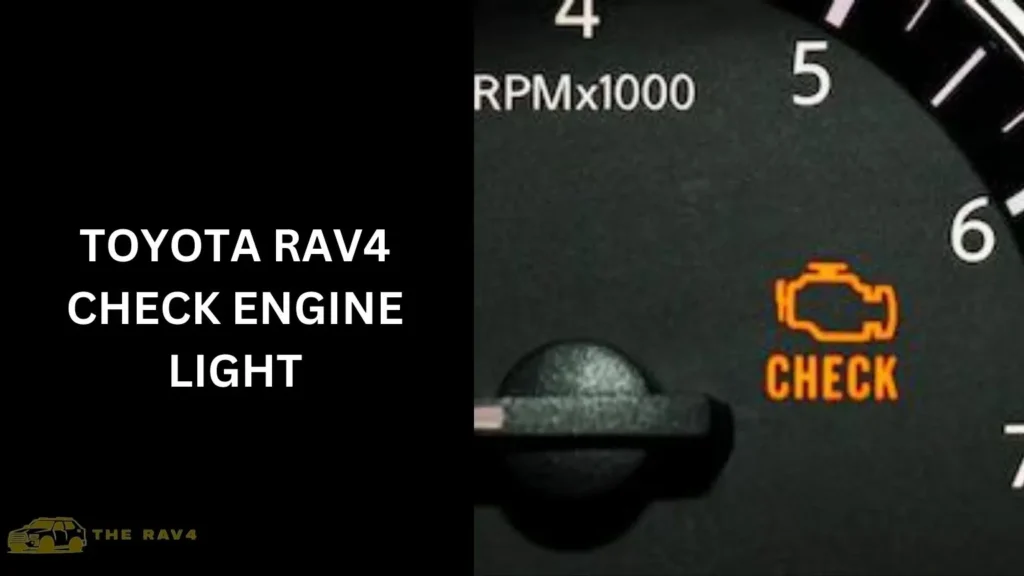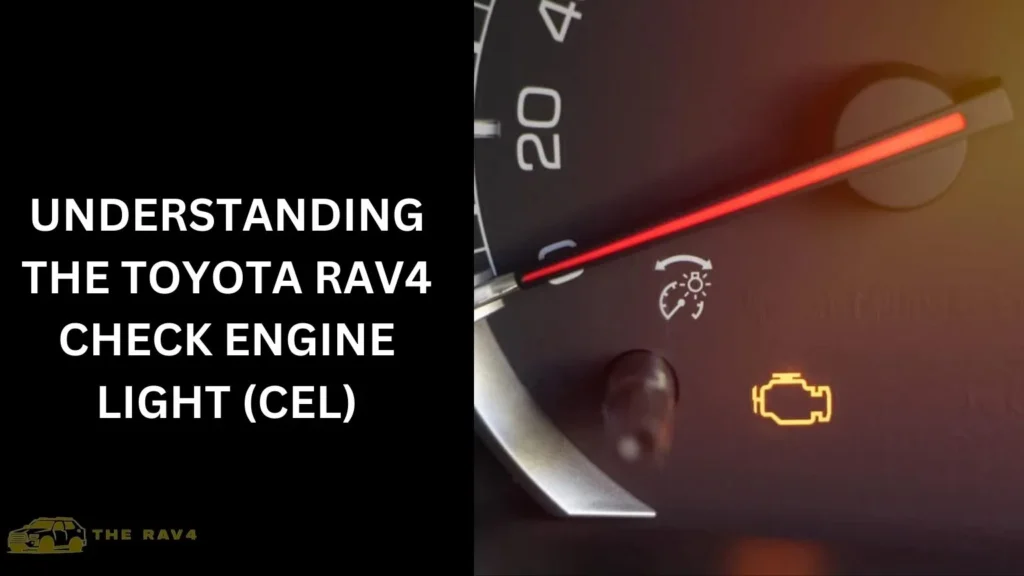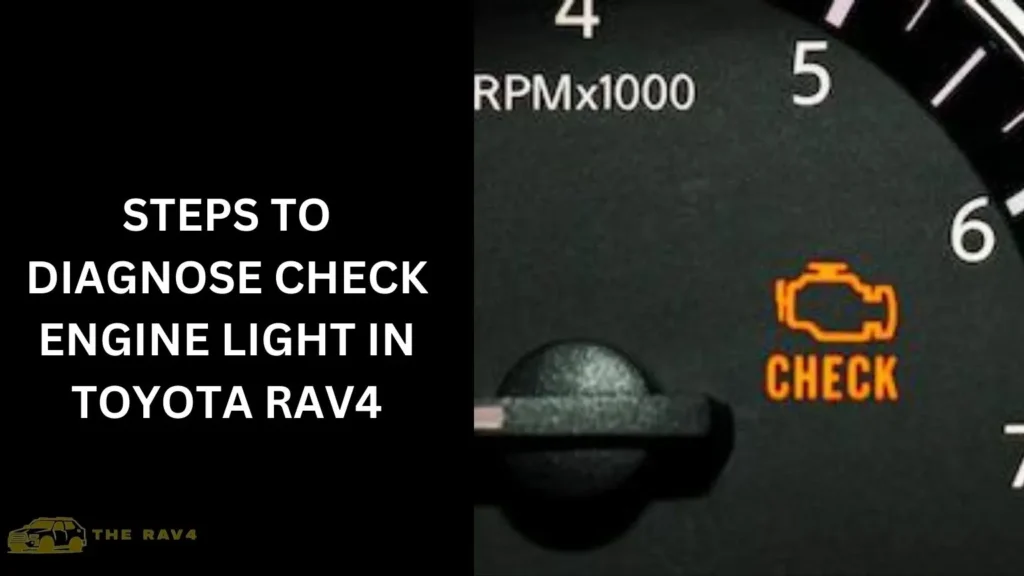Toyota RAV4 is a popular compact SUV known for its reliability and performance. However, like any vehicle, it may experience issues, one of which is the Check Engine Light (CEL) illuminating the dashboard.
Understanding the causes, diagnostics, and prevention methods regarding the Toyota RAV4 Check Engine Light is crucial for maintaining optimal vehicle performance and longevity.

Introduction to the Toyota RAV4 and its Check Engine Light (CEL)
The Toyota RAV4 is a versatile SUV that has gained widespread popularity for its combination of efficiency, comfort, and safety features.
Despite its robust engineering, RAV4 owners may encounter instances where the Check Engine Light (CEL) comes on unexpectedly.
Understanding the Toyota Rav4 Check Engine Light (CEL)

The Check Engine Light (CEL) serves as a warning indicator that something may be amiss within the vehicle’s systems.
In the case of Toyota RAV4 and other vehicles, the CEL can be triggered by various factors, ranging from minor issues to more significant mechanical problems.
What triggers the CEL in vehicles like the Toyota RAV4?
The CEL can illuminate due to issues such as faulty sensors, exhaust system irregularities, ignition system malfunctions, or fuel delivery problems.
It’s designed to alert drivers to potential problems that may impact performance, emissions, or safety.
Importance of addressing the CEL promptly
Ignoring the Check Engine Light can lead to worsened performance, reduced fuel efficiency, and potentially costly repairs down the line.
Prompt diagnosis and action are essential to prevent further damage and ensure the vehicle operates optimally.
Common Reasons for Check Engine Lights in Toyota RAV4
Several common issues can trigger the Check Engine Light in a Toyota RAV4:
- Oxygen sensor issues: A malfunctioning oxygen sensor can lead to an improper fuel-air mixture, affecting engine performance.
- Loose gas cap: A loose or damaged gas cap can cause fuel vapor leaks, triggering the CEL.
- Faulty catalytic converter: Issues with the catalytic converter can impact emissions and trigger the CEL.
- Spark plug problems: Worn-out or faulty spark plugs can affect engine combustion, leading to CEL activation.
- Mass airflow sensor malfunction: A malfunctioning mass airflow sensor can disrupt air intake calculations, affecting engine performance.
- Ignition coil issues: Faulty ignition coils can lead to misfires and trigger the Check Engine Light.
- Vacuum leakages: Leaks in the vacuum system can cause engine performance issues and illuminate the CEL.
Steps to Diagnose Check Engine Light in Toyota RAV4

If the Check Engine Light illuminates in a Toyota RAV4, here are steps to diagnose the issue:
- Using an OBD-II scanner: Connect an OBD-II scanner to retrieve diagnostic trouble codes (DTCs) that provide insight into the specific problem.
- Checking for loose connections and components: Inspect for loose wiring, connectors, or components that may be causing the issue.
- Conducting visual inspections: Look for signs of damage or wear in critical areas like the engine bay and exhaust system.
- Consulting a professional mechanic: Seek assistance from a qualified mechanic or dealership for thorough diagnosis and repair.
How to Address Check Engine Light in Toyota RAV4?
While some minor issues like a loose gas cap can be resolved by tightening it, others require professional intervention. Following manufacturer guidelines and seeking assistance from certified technicians for complex issues is crucial.
Cost of Repairing Check Engine Light Issues
Repair costs for check engine light issues in a Toyota RAV4 vary depending on the underlying problem.
Factors such as parts replacement, labor costs, and dealership vs. independent mechanic rates play a role in determining the overall expenses.
For example, if the gas cap wasn’t tightened properly, the repair cost is $0. On the other hand, a faulty catalytic converter for an RAV4 costs an average of $1,300, according to RepairPal. That’s a big difference.
Importance of Regular Maintenance to Prevent Check Engine Light Issues
To minimize the occurrence of Check Engine Light issues in a Toyota RAV4, regular maintenance is crucial:
- Scheduled servicing and inspections: Follow the manufacturer’s recommended service intervals and conduct regular inspections.
- Addressing minor issues promptly: Addressing minor issues early can prevent them from escalating and triggering the CEL.
- Using quality fuel and fluids: Use high-quality fuel and fluids to maintain optimal engine performance and reduce the risk of CEL triggers.
People also ask
Why is my check engine light on in my Toyota RAV4?
The check engine light in your Toyota RAV4 could be on due to various reasons, including issues with the oxygen sensor, a loose gas cap,
ignition coil problems, or issues with the catalytic converter.
It’s crucial to diagnose it with a professional to determine the exact cause and address it promptly.
What is the most common reason for check engine light?
The most common reason for a check engine light to illuminate is a loose or faulty gas cap.
How bad is a solid check engine light?
What is the first thing to check when the check engine light comes on?
When the check engine light comes on, the first thing to check is the gas cap.
Ensure that it is securely tightened to rule out a loose gas cap as the cause of the issue.
If the light persists, seek a professional diagnosis to identify and address the underlying problem.
Conclusion
In conclusion, addressing the check engine light in a Toyota RAV4 is crucial for maintaining optimal performance and identifying potential issues early.
Whether it’s a minor problem or a more serious issue, prompt diagnosis and repair can prevent further damage and ensure the safety and reliability of your vehicle.
Remember to consult with a qualified mechanic or utilize diagnostic tools to accurately determine the cause of the check engine light and take appropriate action to resolve it promptly.
